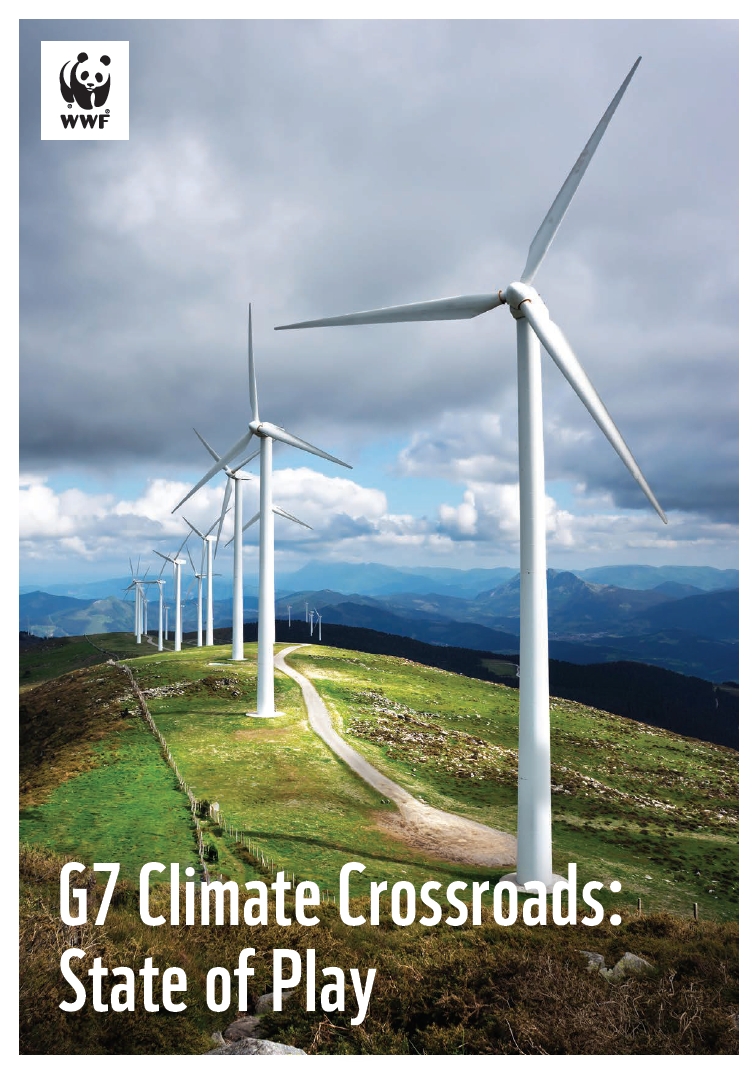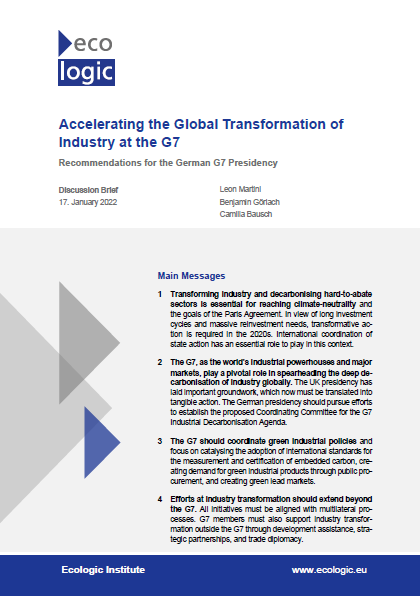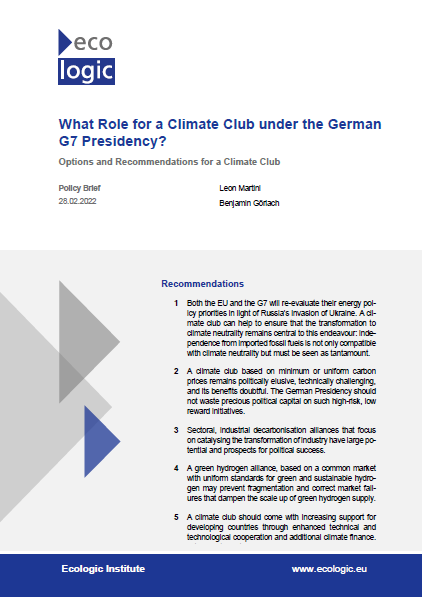G7 Climate Crossroads: State of Play
- Publication
- Citation
Gardiner, Jonathan & Jakob, Michael: G7 Climate Crossroads: State of Play. Ecologic Institute, Berlin (2022).
This report takes stock of emission trajectories, climate policies and complementary policies in G7 countries. It helps to identify gaps in the existing policy landscape of global decarbonisation efforts and proposes potential improvements. Based on these insights, we consider that G7 countries would be able to accelerate the global energy transition by:
- Clarifying the nature of their net-zero targets and implementation plans
- Clear commitments, timetables and guidelines to phase out fossil fuel subsidies
- Agreeing on dates to phase-out internal combustion engines
- Strengthening and demonstrating leadership on a just coal transition
- Establishing a roadmap towards phasing out gas and oil use
- Adopting measures to alleviate energy poverty that are aligned with energy security concerns
- Accelerating deployment of both renewable energy sources and energy efficiency measures to address energy security, energy affordability and decarbonisation
- Moving forward on climate finance towards the US$ 100 bn per year goal by increasing the total amounts deployed and the share of grant finance
- Ensuring that carbon border adjustments are applied as enablers of domestic climate policy that minimise detrimental effects on the trade partners targeted
- Building momentum to establish a cooperative climate club based on existing energy and climate partnerships
Table ES 1 provides an overview of emission reduction targets, carbon pricing policies, support schemes for renewable energy, existing fossil fuel subsidies, phase-out dates for coal and internal combustion engines, as well as dependencies on imports of coal, oil and gas.
Table ES 2 summarises current policies to enable just energy transitions, protect consumers against energy poverty, climate finance commitments and energy partnerships to facilitate energy transitions in other countries as well as proposals to introduce carbon border adjustment mechanisms.






